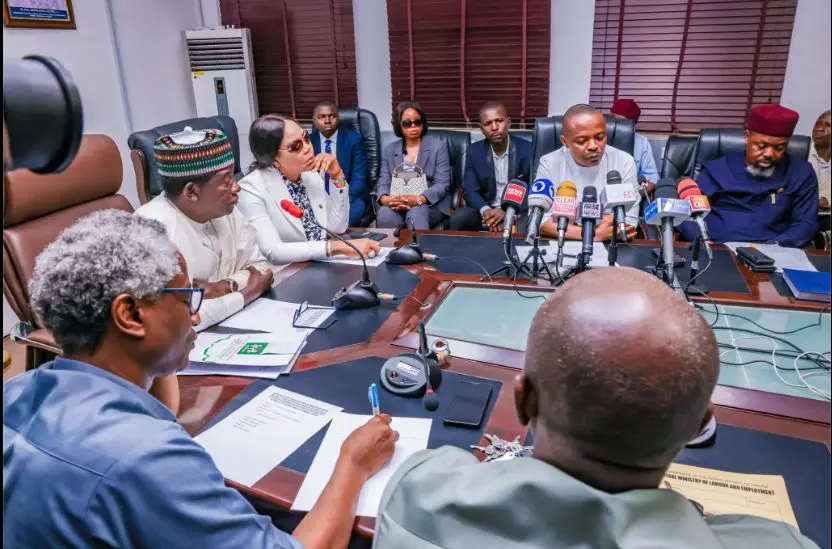After two days of deliberations, negotiations over the national minimum wage hit another deadlock yesterday. The Federal Government negotiating team increased its offer by N2,000, bringing the total minimum wage offer to N62,000. However, Organised Labour reduced its demand to N250,000 from the initial N494,000.
The state governors, on their part, declared their inability to pay even the N60,000 proposed by the Federal Government before the recent increment. They argued that such a wage hike would be unsustainable, as it would drain their resources and leave little for development purposes.
The Tripartite Committee on New National Minimum Wage adjourned following the disagreement. A source disclosed, “There was disagreement on the amount. The government offered N62,000 but Labour is now demanding N250,000. The report is to be communicated to the President for further deliberation.”
Before the Federal Government’s increase to N62,000, the Nigeria Governors Forum (NGF) had expressed concerns about the proposed wage. They emphasized the need for a sustainable agreement that considers the socio-economic variables and avoids financial strain on the states.
Recall that the organised labour, comprising the Nigeria Labour Congress and Trade Union Congress, suspended their strike for five days on Tuesday, following failed negotiations and the Federal Government’s commitment to raise the minimum wage beyond N60,000.
Labour Condemns SGF’s Statement
In a strong condemnation, the Nigeria Labour Congress (NLC) criticized the Secretary to the Government of the Federation (SGF), Senator George Akume, for labeling the strike as “treasonable felony” and “economic sabotage.” The NLC viewed these comments as undermining democracy and the legitimate grievances of workers.
The NLC reiterated its demands for a new national minimum wage in line with the cost of living, a reversal of the electricity tariff hike, and an end to discriminatory electricity tariff classifications. They urged the SGF to retract his remarks and engage in genuine dialogue free from threats and intimidation.
The NLC reaffirmed its commitment to advocating for the rights and welfare of Nigerian workers, pledging to continue pursuing their demands through legitimate means.

